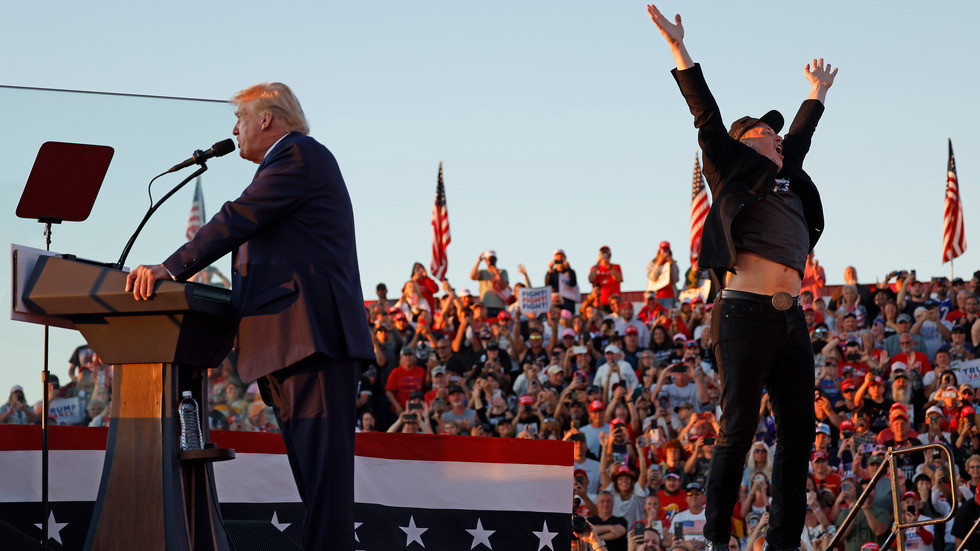Elon Musk, the CEO of Tesla and SpaceX, made headlines by endorsing Donald Trump at a rally in Pennsylvania, portraying Trump as a defender of democracy and the U.S. Constitution. During the event, Trump, secured behind bulletproof glass, introduced Musk with high praise, labeling him as an exceptional individual poised to help safeguard the nation’s future. The rally resonated with the audience, particularly given its location, which held significance as the site of an attempted assassination on Trump just a few months prior. Musk’s endorsement came during a moment of heightened tension, where he drew contrasts between Trump and current President Joe Biden, referencing Biden’s well-publicized stumble while boarding Air Force One as a metaphor for perceived weaknesses in leadership.
Musk’s commentary at the rally was laden with urgency, as he positioned the upcoming election as the “most important” in recent history. He articulated a passionate defense of free speech, claiming that the opposing political faction was intent on dismantling constitutional rights, including freedom of expression, the right to bear arms, and the right to vote. His assertions were met with enthusiastic support from the crowd, which chanted his name in a manifestation of their solidarity. This endorsement marks a significant shift in Musk’s previously neutral political stance, as he has aligned himself more openly with Republican ideals, particularly those championed by Trump.
Historically, Musk had maintained a careful distance from partisan politics, but recent events, including Trump’s narrow escape from assassination, seemed to catalyze his active support for Trump. Musk has sharply criticized the Biden administration, particularly its policies surrounding government regulation and immigration, aligning these issues closely with Trump’s campaign themes. This growing political alignment suggests a shift not only in Musk’s personal beliefs but also in his public persona as a businessman and influential figure in technology.
The socio-political implications of Musk’s endorsement are significant. It reflects a broader trend among some tech leaders aligning with conservative ideologies, especially in the wake of debates over free speech and governmental regulation of technology firms. Musk’s appeal to Trump’s supporters extends beyond mere political endorsement; it embodies a narrative that champions liberties that he believes are being eroded by opposing agendas. This depiction resonates particularly well with those who feel that their freedoms are threatened, thereby solidifying Musk’s position as a prominent figure within the conservative movement.
As Musk continues to speak out against what he perceives as governmental overreach, he has been met with both cheers and criticisms. Advocates for a balanced approach to immigration, regulation, and civil liberties may view Musk’s vehement support for Trump as excessively polarizing. However, the billionaire appears undeterred as he and Trump navigatively cultivate a partnership intended to mobilize populist sentiments. Speculation regarding his role in a potential Trump administration has increased, particularly after Trump announced plans for a government efficiency commission spearheaded by Musk if he were to regain the presidency.
The rally underscored Musk’s broader ambition: to leverage his influence to drive a political agenda that aligns with his entrepreneurial spirit and personal convictions. As the 2024 election approaches, Musk’s newfound political engagement exemplifies a trend of influential figures utilizing their platforms to shape societal narratives. By aligning himself closely with Trump, Musk aims to advocate for a vision of governance that champions individual liberties and resistant to government control. This evolving dynamic between technology, politics, and personal belief systems will continue to play a critical role in shaping the political landscape in the United States in the years to come.

